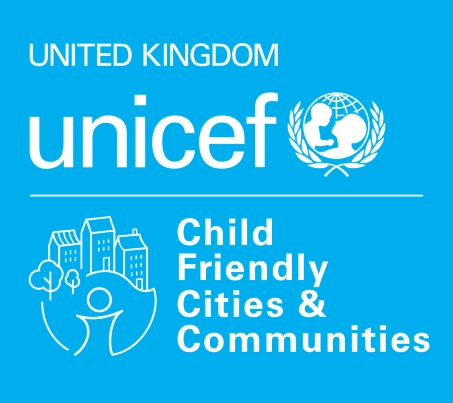
Becoming a Unicef Child Friendly
City or Community
It takes between three to five years for a city or community to be recognised as a UNICEF Child Friendly City or Community.
Swipe right on the image below to learn more.




